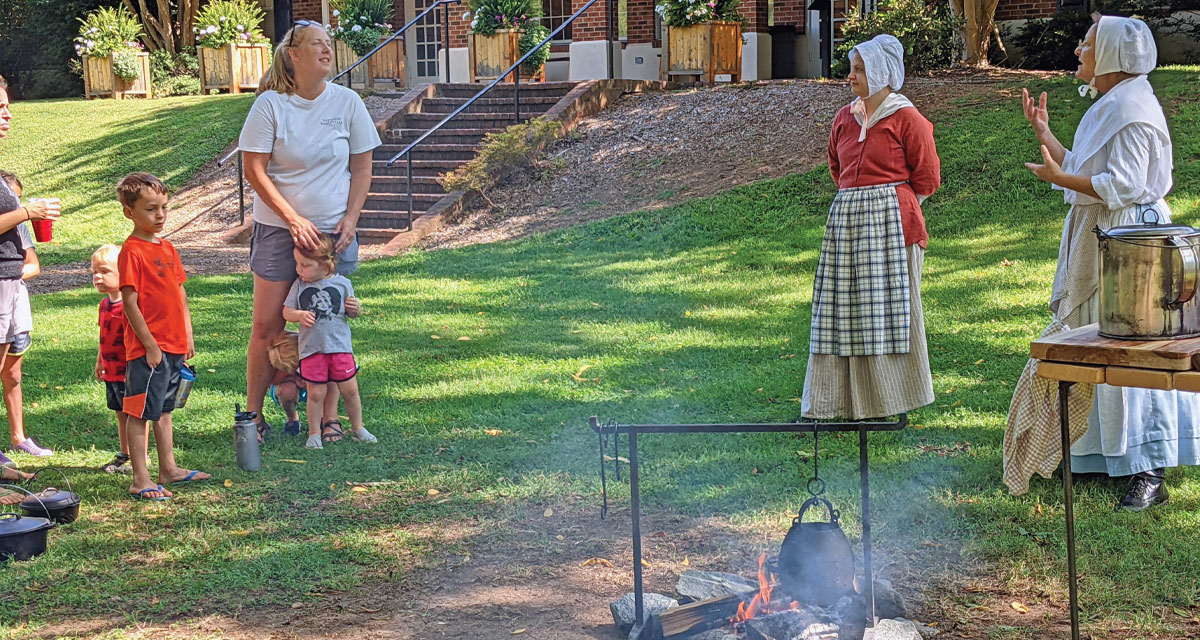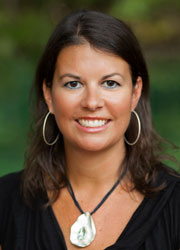As our community continues to reopen in starts and stops, creativity reopening remains important. Historic Bethabara (which in Hebrew means “house of passage”), is a big part of our community’s Moravian heritage. In 1752, the Moravians purchased 100,000 acres of North Carolina land known as the “Wachovia Tract,” and in 1753 fifteen Single Brothers came from Bethlehem, PA, to establish Bethabara, and stayed their first night in an abandoned cabin. The early settlers were known for advanced agricultural practices, notably their medicinal garden, which produced over fifty varieties of herbs.
In an effort to open and get people back to the site, Historic Bethabara Park re-incorporated some of their past events to bring visitors to the local historic landmark. In the past Bethabara held an annual Hands-on-History Day, as well as weekly hands-on demonstrations, such as Blacksmith Wednesdays. The response was so positive that they thought this could be a way to educate their visitors in a safe and hands-on-way.
Diana Overbey, Assistant Historic Parks Supervisor, says, “We have so many talented guides on our staff, and wanted to be able to showcase those talents and bring Bethabara to life in a new way. On any given weekday when we are open, visitors will have an opportunity to meet with a different tradesperson and learn about what they are demonstrating, along with what Bethabara was like when it was the main commercial center of the Wachovia tract.”
Complying with Covid protocols, all of the demonstrations are taking place outside. The activities will be set up around the Visitor Center to make it convenient for visitors. On any given day you may see students experiencing a field trip in Bethabara or local residents learning more about the history that’s in our backyard.
Overbey adds, “It’s important for visitors to understand that by 1765, Bethabara was the bustling commercial center in Wachovia. It was so successful that there was much debate about whether or not to build Salem. In the end, the Moravian Church decided to keep its original plan and construct Salem to serve as Wachovia’s central town, and many of the tradespeople in Bethabara moved to Salem as a result. When visitors come to Bethabara today, they see a quiet park with a few historic buildings, which makes it hard to imagine the bustling town it once was. By providing opportunities for visitors to talk with our guides and watch them work, we hope to spotlight this important part of Bethabara’s history and bring the site to life once more.”
Mark your calendars for:
Pottery Tuesdays
Blacksmith Wednesdays
Textile Thursdays
Woodworking & Foodways Fridays
For more information, visit historicbethabara.org or call (336)397-7587, or you can find us on Facebook & Instagram @bethabarapark























